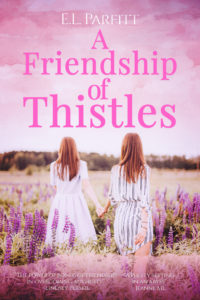These are thoughts on marriage came from a talk given by V. Spike Peterson (University of Arizona) in Social Sciences 11th June, Warwick University,
Discussions about marriage
I think that discussions of marriage are very topical at the moment given the media attention on same sex marriages, and the long overdue changes taking place. I’m not certain about the links Peterson draws between the state and marriage. She herself said she was taking a bird’s eye view and there are many complex processes involved. Peterson comes from a psychologist turned international relations viewpoint.
‘Hold onto your hats!’ Peterson began. By the time it had ended I felt entertained and informed about something I knew little about before. I also felt like I had just crammed for an exam. There was a lot of history to cover about the change of marriage overtime since ancient Greece to the present which I can’t do justice to here.
The presentation
Peterson’s presentation was not a critique on marriage, as she acknowledged the emotional investments of many individuals as well as alternative marriage arrangements. Her talk was liberal, and not based on any biology or factors at an individual level. It was more to stimulate discussion in this area. Her argument was that the state formalised and supported marriage as a structure through organisations like the church leading to the image of marriage we have today. That marriage was based on Christian, monogamous, relationship values that benefits privileged men, and therefore sustains inequality between people.
Did I understand correctly?
If I understood correctly, because the state formalised marriage this leads to the ‘normalisation’ of heterosexual, patriarchal marriages. This leads in turn to male-female differences (in gender roles within a marriage). And, therefore husband-wife relationships. The structure of one male to one female partner, plus children, reinforces certain stereotypes based around sex and gender identity.
A patriarchal structure causes continued economic equality as privileged males inherit property (only certain people could in the past inherit family property). As family inheritance is passed down amongst certain individuals in the family, through history this has maintained an economic advantage for men in particular, particularly in certain classes. This affects life chances.
An example
Peterson cited as an example the post-war GI Bill in the USA where white males that had served in the army had opportunities to study. Therefore, they had an educational advantage over other men, which lead to jobs and the purchase of property. This excluded many people, including women, and was clearly racist.
There has been complicated if restrained resistance to such limitations throughout history. Take the suffragette movement, and feminism. However Peterson emphasises, ‘We haven’t gone beyond racism, sexism.’ Rather they have ‘changed shape. You just need to look around at who does things, how they are paid, the roles males and females are assigned.’ And how, ‘patriarchy has got a different face, a female face.’
A definition of Patriarchy
Where my interest lay was in a brief mention of writing technology and literacy. Without writing by people at different points in history (policy documents included) how would we know what happened at the time? Writing is a powerful ideological capturing tool. And easier to research than language which extends through time and space. A person in the audience asked a question about language. Perhaps looking at this to capture views and interactions, changing ideologies across time.
A huge task, which I felt resonated with my thesis. Although I am looking at a more micro-scale, what stories interpreted by young people may demonstrate about gender identities and stereotypes. Identity, particular gender, is becoming part of my thesis. As identity formation appears to be important when considering emotional and behavioural management.
Influence
Carrying this idea forward of capturing our time I wrote A Friendship of Thistles. Set in the working- and middle-class lives of mothers in Edinburgh.

0 Comments